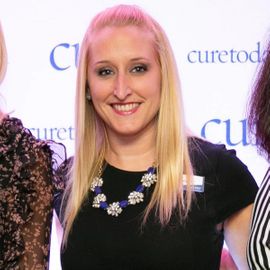Breaking Barriers: Addressing Women of Color Underrepresentation in Clinical Trials - Episode 3
Breaking Barriers of Medical Mistrust in Breast Cancer With More Information
In this on-demand webinar series, CURE partnered with TOUCH, The Black Breast Cancer Alliance to discuss how women of color with breast cancer can learn more about their disease.
In part three of CURE’s “Breaking Barriers: Addressing Women of Color Underrepresentation in Clinical Trials” webinar, Ricki Fairley, CEO of TOUCH, The Black Breast Cancer Alliance; Hayley Brown, director of partnerships and programs at TOUCH, The Black Breast Cancer Alliance; and Michelle Anderson-Benjamin, CEO and founder of The Fearless Warrior Organization, discussed reasons for medical mistrust, and how women of color with breast cancer can learn more about their disease and communicate better with their care teams.
“The trust is built by the by getting educated, by learning more about the disease, by learning more about the treatment options, by learning more about clinical trials, by learning more about the things that you need to know,” Fairley said.
Summary:
00:15 – Barriers to clinical trials for black women.
- Michelle Anderson-Benjamin addressed barriers to clinical trials for Black women with breast cancer, including historical mistrust of the medical system and a lack of persistence in advocating for patient needs
01:41 – Lack of communication between doctors and patients.
- Michelle Anderson-Benjamin gave an example of medical mistrust: When a lack of knowledge, such as physicians failing to have discussions about family planning with women in childbearing years of age after a breast cancer diagnosis, can lead to mistrust in their care team and the health care system.
02:50 – Building trust in medical information and responsible advocacy.
- Ricki Fairley emphasized the importance of learning through responsible information sharing and staying connected to trusted doctors as well as breast cancer advocacy groups.
03:50 – Forms of communicating with the medical team.
- Michelle Anderson-Benjamin suggested that patients can send questions to their doctors via their health care portal, writing a letter with questions for their next appointment, and involving family members in the process.
For more news on cancer updates, research and education, don’t forget to subscribe to CURE®’s newsletters here.




